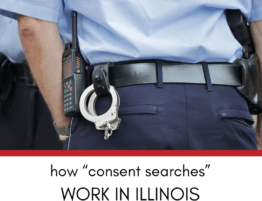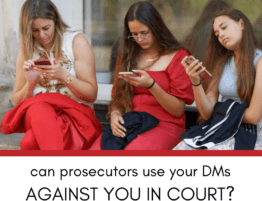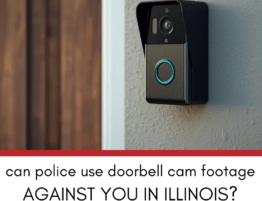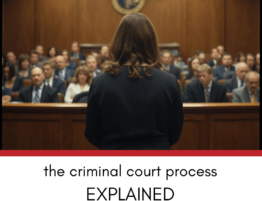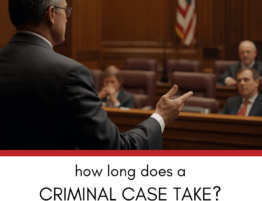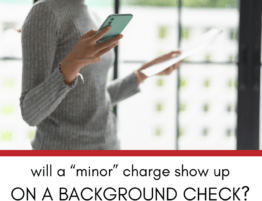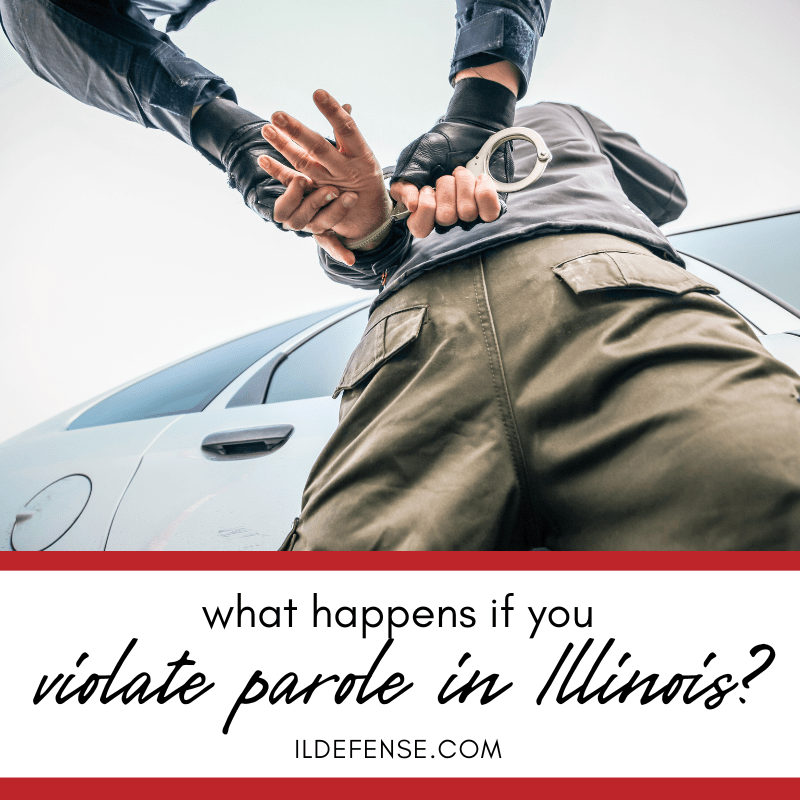
Understanding the consequences of violating parole in Illinois is crucial if you’re on parole or facing allegations of a violation. Knowing what to expect can help you navigate the process and protect your rights.
What Happens if You Violate Parole in Illinois?
Violating parole can have serious consequences. This guide explains the following:
- Definition of a parole violation
- Common types of parole violations
- The parole violation process
- Possible consequences of a parole violation
- Frequently asked questions
Here’s a closer look at each.
Definition of a Parole Violation
A parole violation occurs when an individual on parole fails to comply with the conditions set by the parole board. Parole conditions are designed to help integrate the parolee back into society while ensuring public safety. Violations can be either technical, involving breaches of specific parole conditions, or substantive, involving new criminal offenses. Understanding what constitutes a parole violation is essential for anyone on parole.
Related: Chicago criminal defense
Common Types of Parole Violations
There are several common types of parole violations, including:
- Failing to Report: Not checking in with a parole officer as required.
- Traveling Without Permission: Leaving a designated area or state without approval.
- Failing a Drug Test: Testing positive for illegal substances.
- New Criminal Offenses: Committing a new misdemeanor or felony while on parole.
- Associating with Criminals: Interacting with known criminals or engaging in prohibited activities.
- Missing Curfew: Not adhering to a set curfew established by the parole board.
These violations can trigger a review process by the parole board to determine the appropriate response.
Related: How to fight traffic offenses in Chicago
The Parole Violation Process
When a parole officer suspects a violation, they may file a report with the parole board. The process typically involves the following steps:
- Investigation: The parole officer investigates the alleged violation, gathering evidence and speaking with witnesses.
- Arrest and Detention: If the violation is serious, the parolee may be arrested and detained pending a hearing.
- Parole Violation Hearing: A hearing is held to determine whether a violation occurred. The parolee has the right to be represented by an attorney and to present evidence and witnesses in their defense.
- Board Decision: The parole board reviews the evidence and makes a decision. If they find a violation occurred, they will determine the appropriate consequences.
Having legal representation during this process is crucial to protect your rights and present a strong defense.
Possible Consequences of a Parole Violation
If the parole board determines that a violation occurred, several consequences may follow, including:
- Warning or Reprimand: For minor violations, the parolee may receive a warning or reprimand.
- Increased Supervision: The parolee may face stricter conditions, such as more frequent check-ins or drug testing.
- Extended Parole Term: The parole term may be extended to provide additional supervision time.
- Revocation of Parole: For serious violations, parole may be revoked, and the parolee may be returned to prison to serve the remainder of their sentence.
The severity of the consequences depends on the nature of the violation and the parolee’s history.
Related: What to do if police question you
FAQ About Parole Violations in Illinois
Check out these commonly asked questions about parole violations in Illinois. If you don’t see your question here, please call our office and we’ll find you the answers you need.
What Should I Do If I’m Accused of Violating Parole?
If you’re accused of violating parole, contact a criminal defense lawyer immediately. Your lawyer can help you understand the charges, prepare your defense, and represent you at the parole violation hearing.
What Happens During a Parole Violation Hearing?
During the hearing, the parole board will review the evidence, hear testimony from the parole officer and any witnesses, and allow you to present your defense. The board will then decide whether a violation occurred and determine the appropriate consequences.
Can Parole Be Revoked for a Technical Violation?
Yes, parole can be revoked for a technical violation, such as missing a curfew or failing to report to your parole officer. The severity of the violation and your overall compliance with parole conditions will influence the board’s decision.
How Can a Lawyer Help If I Violate Parole?
A lawyer can provide crucial support by representing you at the parole violation hearing, challenging the evidence against you, and advocating for a fair outcome. Legal representation increases your chances of avoiding severe consequences and protecting your rights.
Do You Need to Talk to an Attorney?
If you’ve been accused of a crime, we may be able to help you – and don’t worry: It’s completely confidential. Call us at 847-920-4540 or fill out the form below to schedule your free, private consultation with an experienced and skilled Chicago criminal defense attorney now.
Contact Us
"*" indicates required fields


